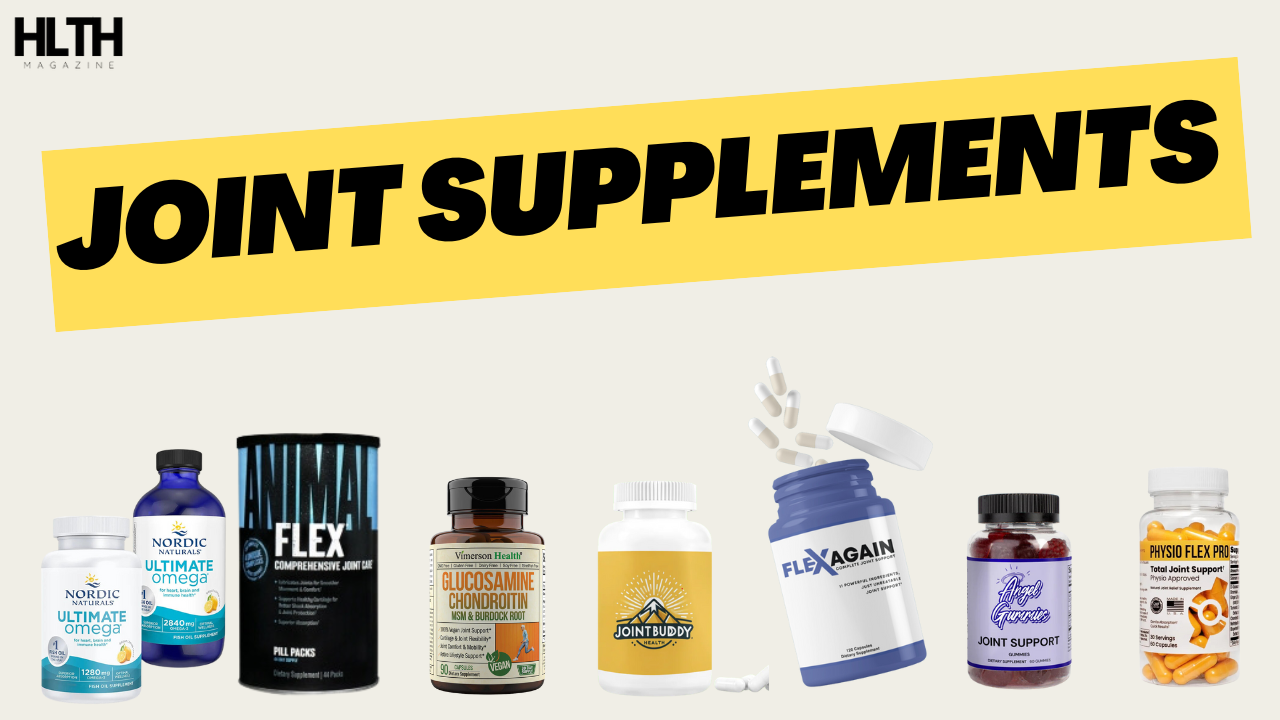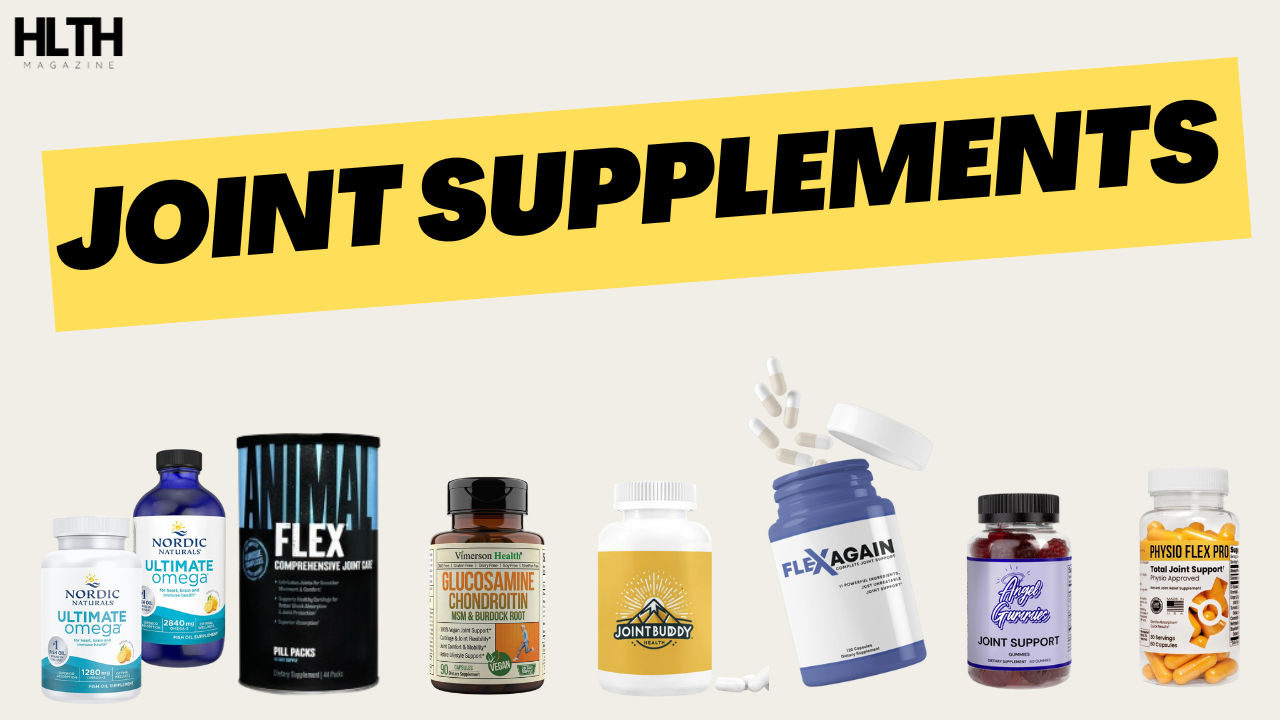
What Do We Look For In The Best Joint Health Supplements?
When recommending joint supplements we make sure that we've tried and tested them ourselves, but we also study the ingredients carefully against all the studies that are currently available. We listen to customers, run surveys and do our very best to make sure all our information is as accurate as it can be. In short we judge the products on our best joint supplements list on the following criteria:
Quality of ingredients
How well they work for joint pain
Long Term Joint Health Benefits
Swelling Reduction
Any Specialized Effects
Customer Satisfaction
This means that you can be sure you're getting a quality product with proven health benefits. We will outline the pros and cons of each supplement and we also compare the supplements against what they claim to do, so you just get legitimate information, not marketing hype. Think more omega oil and less snake oil.
Joint supplements can help reduce joint pain, and promote long term joint health, but they're unlikely to completely remove the aches and pains of getting older. But, they definitely can help. We won't knock points off for overhyped marketing, although it does typically reduce customer satisfaction. We also try to avoid proprietary blends as we cannot be sure if the doses of each ingredient are high enough to be effective.
What Ingredients Are In The Best Joint Supplements
Vit D - Vitamin D deficiency, which almost half of US adults have, can exacerbate joint pain, as such vitamin D supplements may help alleviate chronic pain and joint inflammation. [9]
Vit K2 - Vitamin K is important for healthy functioning of proteins in cartilage and bone, vitamin K2 is the more bioavailable (easily absorbed) version of vitamin K.
Omega 3 has long been known to be essential for joint health, most studies that have tested it for this purpose have focused on EPA (Eicosapentaenoic Acid) and DHA (Docosahexaenoic Acid) the two most well known omega 3 fatty acids. Doses over 1000mg are required for it to be effective based on the majority of studies.
Turmeric extract often referred to as curcumin has been shown to reduce inflammation and offer pain relief to people struggling with chronic joint pain. The arthritis foundation says curcumin blocks inflammatory cytokines and enzymes, which is the same way some none over the counter medications operate. Dosages that have been trialled effectively were 500mg capsules of the extract with 1000mg daily looking to be ideal. Studies have shown it to be effective at treating symptoms and may help delay breakdown.
Methylsulfonylmethane (MSM) has been shown to be effective at treating arthritis pain, however, the trials that have taken place so far were limited to studying knee pain.
Ginger extract has been shown to moderately reduce RA pain, the most effective trials used Eurovita Extract 77 a specific ginger extract at 255mg, but ginger itself has also shown to be effective.
Glucosamine and Chondroitin are often prescribed for joint pain in many European countries, considering the amount of evidence backing their use we're not sure why the US has not followed suit, fortunately they're readily available over the counter. Supplementation with Glucosamine sulfate did help those with moderate to mild pain, however, it did not do much for those suffering with more severe joint discomfort.
Bromelain - Initial studies are very positive about bromelain being used to treat joint pain, it's still relatively new, so more studies are required. But, it's a common inclusion in the best supplements for arthritis.
Boswellic acid appears to be an effective anti inflammatory agent, this enables it to improve joint function, and reduce muscle pain. Whilst it requires further trials it currently shows signs of being a positive over the counter treatment.
Does The Type Of Joint Pain Matter For Supplements?
The type of joint issues does matter when it comes to how to treat it, particularly when it comes to arthritis symptoms. For example, some supplements that work to treat osteoarthritis require doses 3-5 times higher to be effective at dealing with RA issues [6]. And some ingredients like bromelain which have numerous studies showing positive anti-inflammatory effects for OA didn’t show much improvement for RA.
Ginger and Curcumin were however consistent across both conditions for example. But ginger required a minimum dose of 4 grams to have an impact for RA, but only 1 gram to make a difference to people suffering from OA. Most of the ingredients with anti inflammation effects are good across the board for joint conditions, but certain ingredients are more beneficial than others.
Curcumin had added benefits for RA and seems to prevent further breakdown in animal models, making it potentially more important than some other ingredients for people with the condition as it may slow progression. [10]
What Else Can I Do To Treat Joint Issues?
Dietary supplements aren’t a catch all even if they can help to reduce joint pain, which is why it’s worth looking into exercising the area to improve overall mobility where possible, this is particularly important with knee pain as correctly working the joints can make a huge difference to support joint health. [11]
What Ingredients Are Common, But Not Effective
Hyaluronic Acid often makes an appearance in joint supplements for rheumatoid arthritis, the reason for this is that Hyaluronic acid injections have been shown to be effective at relieving joint pain, however, studies have shown that it is not actually effective as an oral supplement for supporting joint health.
We recommend FlexAgain as our number one pick.
References
1 - https://www.ncbi.nlm.nih.gov/pmc/articles/PMC7362115/
2 - https://www.ncbi.nlm.nih.gov/pmc/articles/PMC5003001/
3 - https://pubmed.ncbi.nlm.nih.gov/30160612
4 - https://www.webmd.com/arthritis/news/20130823/calcium-plus-vitamin-d-wont-cure-joint-pain-study-finds
5 - https://www.nccih.nih.gov/health/tips/things-to-know-about-omegas-for-heart-disease
6 - https://www.arthritis.org/health-wellness/treatment/complementary-therapies/supplements-and-vitamins/glucosamine-chondroitin-osteoarthritis-pain
7 - https://www.ncbi.nlm.nih.gov/pmc/articles/PMC7601319/
8 - https://ods.od.nih.gov/factsheets/Omega3FattyAcids-HealthProfessional/
9- https://www.ncbi.nlm.nih.gov/pmc/articles/PMC5922228/
10. https://www.ncbi.nlm.nih.gov/pmc/articles/PMC9276000/
11. https://www.nhsinform.scot/illnesses-and-conditions/muscle-bone-and-joints/exercises/exercises-for-knee-problems
- Choosing a selection results in a full page refresh.
- Opens in a new window.





